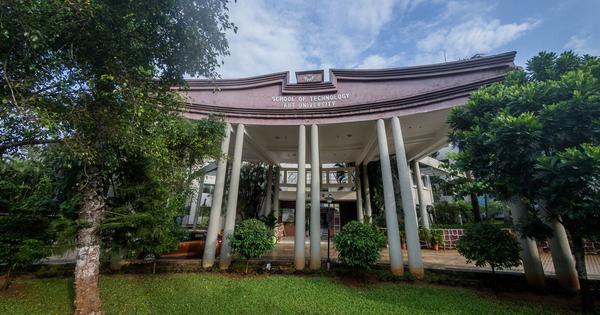
A 20-year-old Nepali student was on Sunday found dead in the hostel of the Kalinga Institute of Industrial Technology in Odisha, triggering tensions on campus and a diplomatic row between New Delhi and Kathmandu, The Indian Express reported.
The third-year Bachelor of Technology in Computer Science student allegedly died by suicide due to a suspected “strained relationship” and the harassment that she allegedly faced by a male batchmate on campus.
On Monday, the Bhubaneswar Police arrested the 21-year-old boy from Lucknow in connection with the alleged suicide. The first information report in the case alleges he was blackmailing the girl.
Meanwhile, about 500 Nepali students at the university claimed that they had been forcibly evicted from campus on Monday for protesting their batchmate’s death. The students blocked the road that leads to the university, accusing the administration of not acting despite the Nepali girl having sought help from the institute’s international students office about the harassment she allegedly faced.
As protests escalated, the university administration announced that the campus was closed for Nepali students, instructing them to vacate immediately, according to reports. Subsequently, the 500 Nepali students were instructed to board buses and were dropped at several railway stations for them to return home.
“The university is closed sine die for all the international students from Nepal,” NDTV cited a notice by the institute as saying. “They are hereby directed to vacate the university campus immediately today on 17th February, 2025.”
Many students, including women, were left stranded at the railway station, with several unable to get train tickets to return home, The Hindu reported.
“The staff members came and asked us to vacate,” a student told ANI. “They even hit those who were not packing quickly.”
Following the alleged eviction of several students, Nepal’s Prime Minister KP Sharma Oli intervened and said that the Nepali embassy in New Delhi had sent two officers to “counsel Nepali students affected in Odisha”.
Oli said that arrangements had been made to provide the students the option to either stay in their hostel or return home, depending on their preference.
“The [Nepali] government is working in contact with diplomatic manner on this issue,” Oli said in a separate Facebook post.
Our Embassy in New Delhi has dispatched two officers to counsel Nepali students affected in Odisha.
Additionally, arrangements have been made to ensure they have the option to either remain in their hostel or return home, based on their preference. #Nepal #Odisha
— K P Sharma Oli (@kpsharmaoli) February 17, 2025
Separately, the Nepali embassy in New Delhi said that it had reached out to the university and other authorities in connection with the situation.
“The embassy has been in continuous contact with Nepali students, the central government of India, the chief minister’s office of Odisha, and other relevant Indian authorities to ensure necessary cooperation and coordination regarding the eviction,” the statement said. “If affected Nepali students face any additional issues, they are encouraged to contact the embassy.”
The diplomatic backlash prompted the university to withdraw its decision asking Nepali students to vacate the campus.
“An appeal is made to all our Nepali students who have or plan to leave the campus to return and resume the classes,” the university registrar said on Monday evening.
APPEAL!
There was an unfortunate incident which took place late in the evening yesterday on the KIIT campus. Immediately after the incident, police investigated the matter and apprehended the culprit.
The KIIT administration has taken all-out efforts to restore normalcy in the… pic.twitter.com/0o3vFs2TWi
— KIIT – Kalinga Institute of Industrial Technology (@KIITUniversity) February 17, 2025
The Indian embassy in Kathmandu expressed its condolences to the family of the girl who had died.
Acknowledging that the university’s decision to evict Nepali students has been reversed, the embassy said “Nepali students studying in India form an important facet of the enduring people to people links between the two countries”.
— IndiaInNepal (@IndiaInNepal) February 17, 2025

